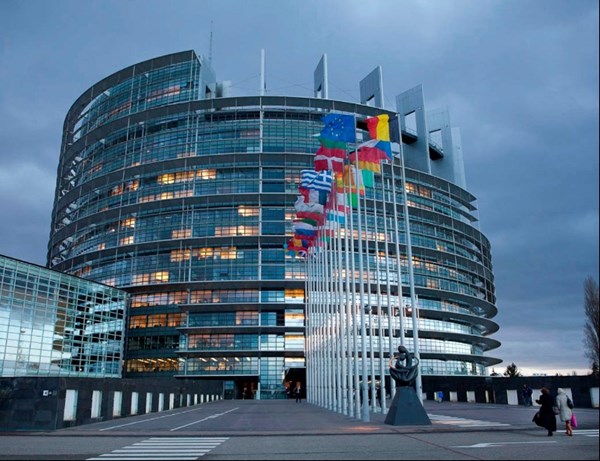EU implements 18th sanctions package against Russia
In a move to counter Russia's unrelenting aggression in Ukraine, the European Union (EU) has announced the implementation of its 18th sanctions package. Despite a weeks-long hold-up due to Slovakia's blockade, EU member state representatives reached an agreement in Brussels on Friday, July 18, as reported by Kaja Kallas, the European Union's High Representative for Foreign Affairs and Security Policy.
" The EU just approved one of its strongest sanctions package against Russia to date. We’re cutting the Kremlin’s war budget further, going after 105 more shadow fleet ships, their enablers, and limiting Russian banks’ access to funding," Kallas announced on platform X.
The newest set of sanctions aims to significantly reduce Russia's revenue from oil exports to third countries while inflicting damage on its financial sector. Plans include preventing the revival of the Nord Stream and usage of Nord Stream 2 pipelines.
Three of the four Russian pipelines to Germany suffered sabotage in September 2022. If repaired, these Baltic seabed pipelines could once again provide Russia with billions from gas sales, as reported by dpa.
Initially intended to follow the June EU summit, the sanctions package faced roadblocks with Slovak Prime Minister Robert Fico threatening a veto.
An agreement was reached after concessions were made, promising Slovakia no severe economic loss if a complete ban on Russian gas imports follows the sanctions. Unlike the sanctions package, this ban requires only a majority decision and cannot be vetoed by Fico.
Malta, Greece, and Cyprus expressed concerns over measures to slash Russian crude oil export revenues, fearing unfair losses to their shipping sectors.
A compromise was struck: the oil price cap will be periodically adjusted, capped at 15% below the average market rate. Initial reductions will lower prices from $60 to $47.60 per barrel, down from the initially proposed $45 a barrel.
The cap is applied to Russian oil sales to countries like India, China, and Turkey. Introduced in 2022 alongside the U.S., Japan, Canada, and the United Kingdom, it enforces penalties against companies engaging in oil transport below the set price. This includes shipping firms and entities providing insurance, technical assistance, financing, and brokerage.
Beyond these measures, other sanctions include prohibiting imports of refined Russian oil products (e.g., automotive and aviation fuels, fuel oil) to close loopholes and prevent indirect exports via third countries.
There's a ban on financial transactions with third-party companies circumventing oil-related sanctions. Over 100 vessels within Russia's "shadow fleet", evading energy sanctions, are added to the list. These vessels won't be allowed EU port access, nor will they receive insurance, financing, or servicing from EU companies, affecting roughly 450 ships.
Additional sanctions target 22 more banks, disconnecting them from the SWIFT system and prohibiting financial transactions. For the first time, the sanctions extend to two Chinese financial institutions hindering EU sanctions compliance, along with several Chinese companies directly backing Russian aggression.
The sanctions also encompass new export restrictions on goods like machinery that might be used in military production. Personal and corporate sanctions expand with over 50 new additions, now encompassing more than 2,500 individuals and entities.
The effectiveness of these sanctions remains debated. Critics question their influence on Putin's policies, while advocates argue they significantly strain Russia's economy and budget. Supporters state that without sanctions, Russia might have won the Ukraine conflict long ago.
On the same day, July 18, the European Council passed this 18th sanctions package, set to take effect following its official publication.
Estonian Foreign Minister Margus Tsahkna revealed the EU is already drafting the next sanctions round against Moscow. "We won't settle for half-measures. Each package strengthens our message: Ukraine will not stand alone, and Russia will not go unpunished," as quoted in an Estonian Foreign Ministry press release.
